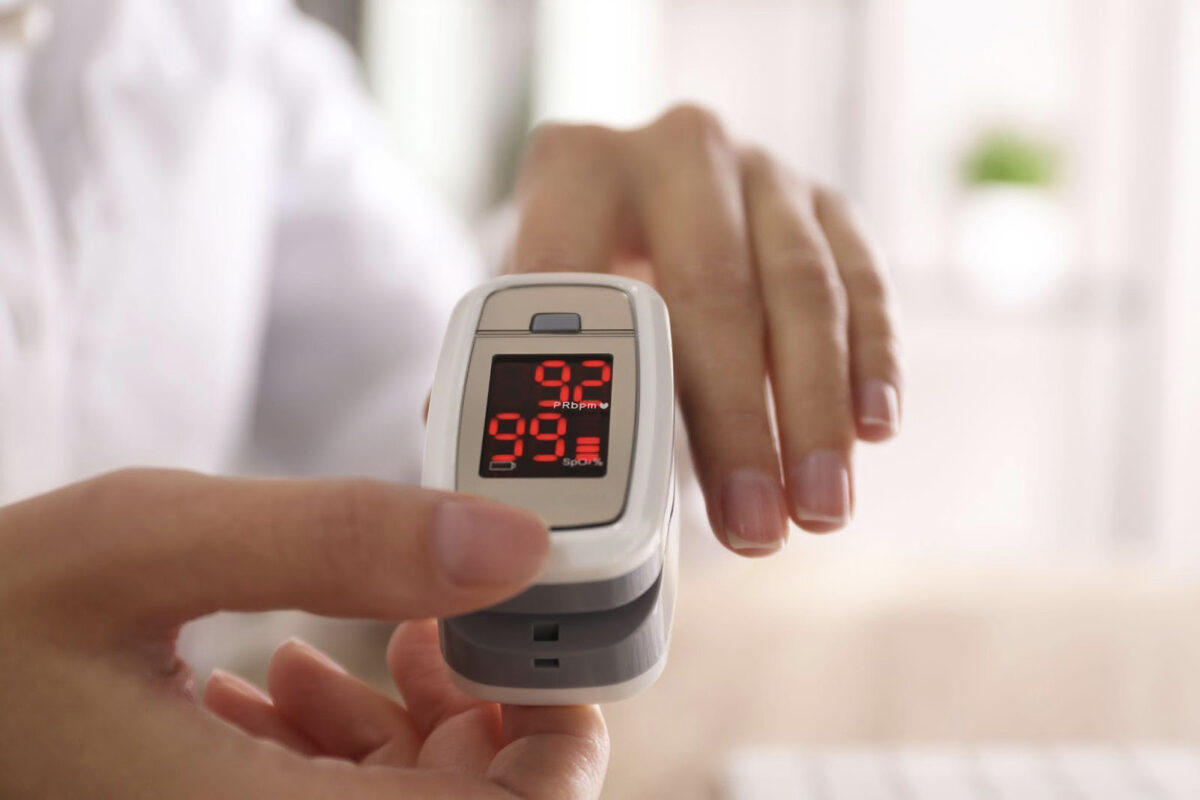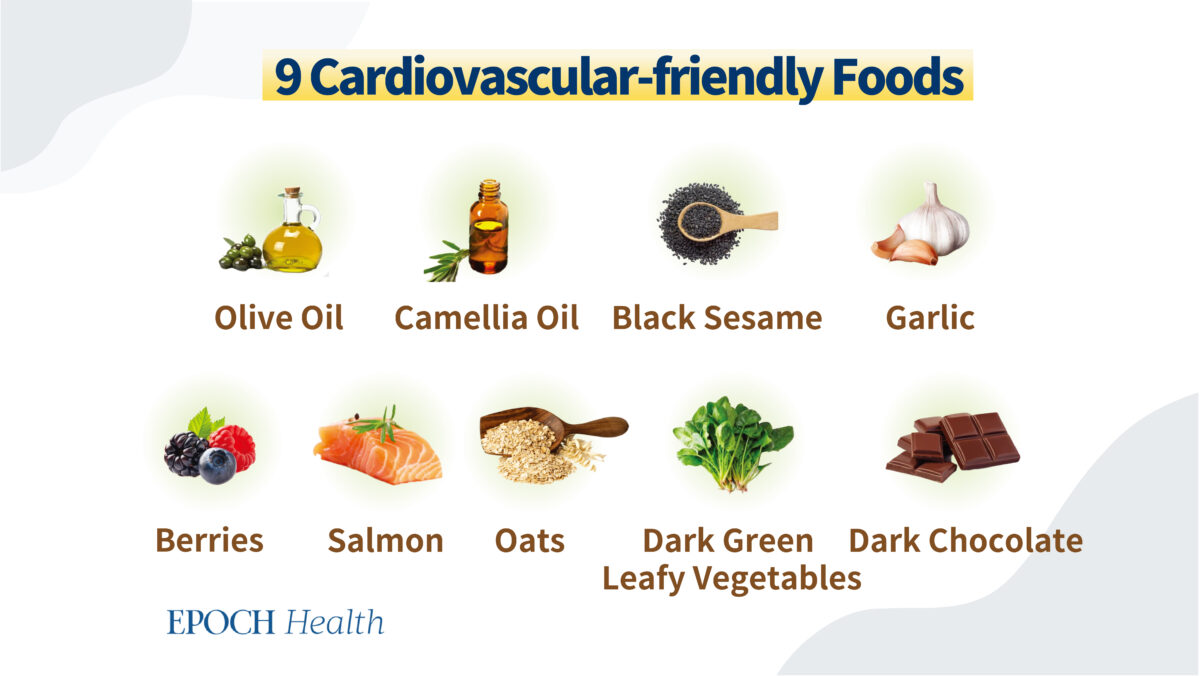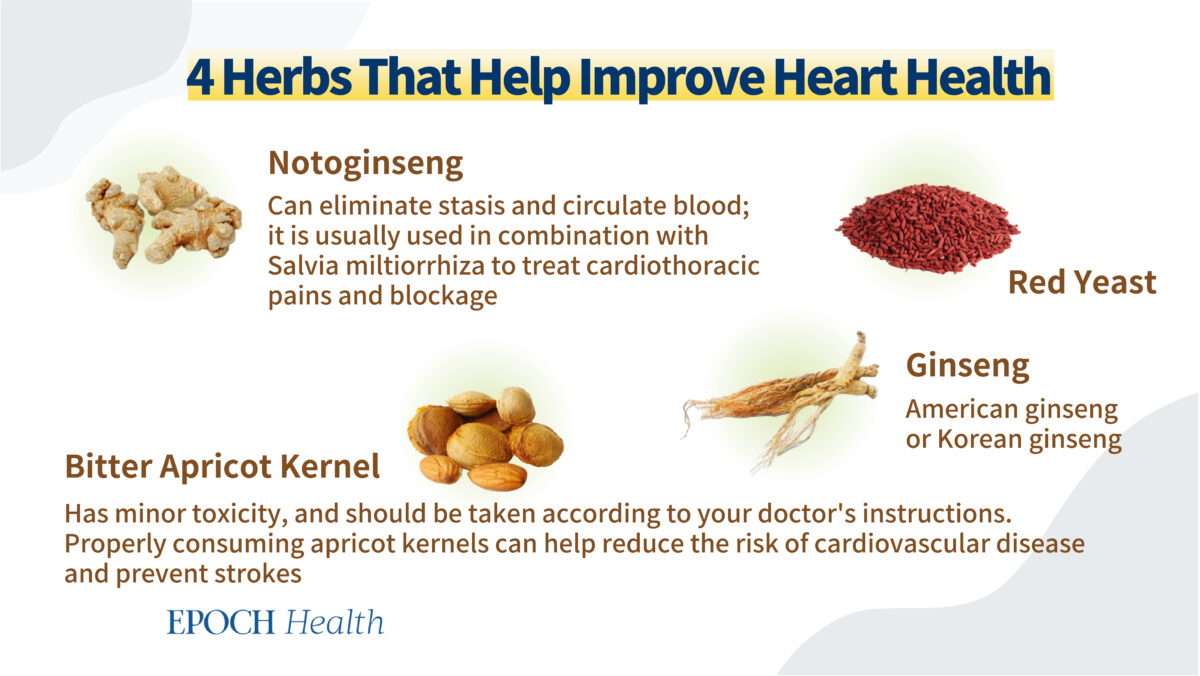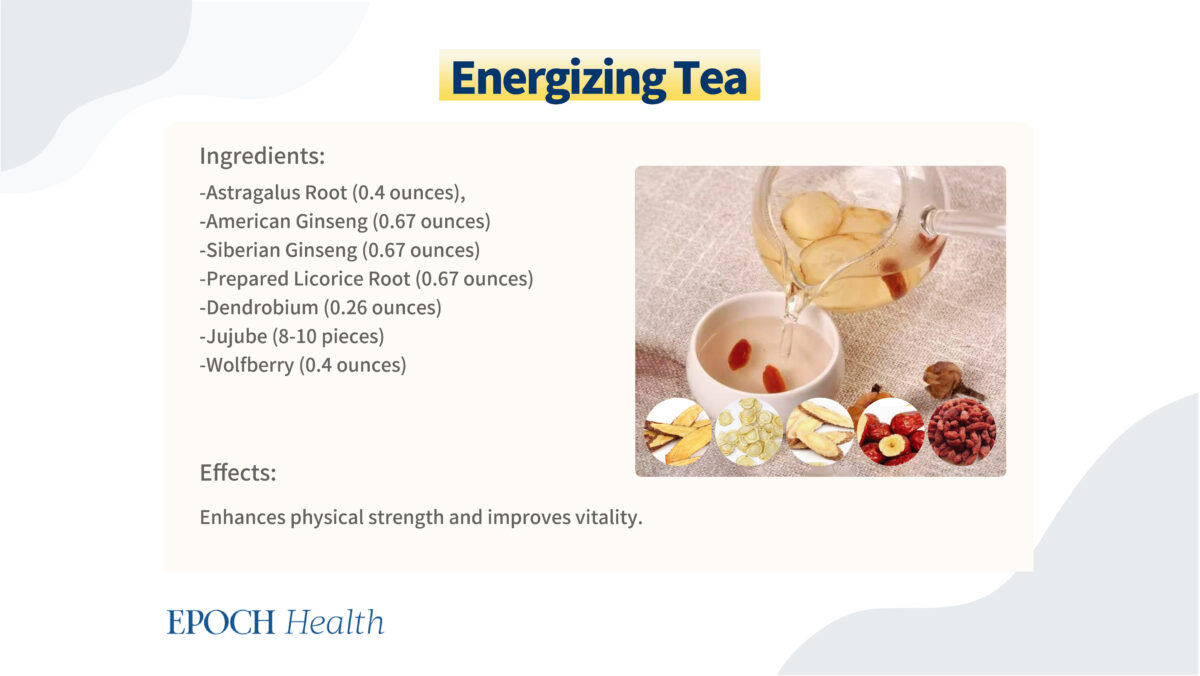How Ancient Therapies Can Keep Your Heart Healthy
Many people who have recovered from COVID still suffer from long COVID symptoms, including chest pain and tight chest.
The U.S. Centers for Disease Control and Prevention (CDC) estimates that about 20 percent of U.S. adults have symptoms of long COVID. Chest pain and tight chest are the most common symptoms. There are many possible causes of chest pain and tight chest, which may be related to the heart or caused by problems in the lungs, esophagus, muscles, ribs, or nerves, some of which are even life-threatening.
Dr. Guo Dawei, a physician at the Fuyuan Traditional Chinese Medicine Clinic in Taiwan, explains the treatment of chest pain and tight chest and recommends cardiovascular-friendly food, traditional Chinese Medicine (TCM), and herbal tea.
Health Warnings of Chest Pain and Tight Chest
Guo explained that there are four major reasons why tight chest and chest pain have become the sequelae of long COVID:
- Worsening coronary heart disease: For patients with coronary heart disease, COVID will affect the permeability of the blood after invading the body, leading to lesions in the peripheral blood vessels and causing inflammation of the blood vessels, resulting in the aggravation of coronary heart disease.
- Abnormal blood clots: Patients with cardiovascular problems will likely suffer chest pain due to pulmonary embolism after diagnosis of COVID.
- Pulmonary inflammation: COVID allows increased 3CL protease activity, causing lung fibrosis.
- Hypoxia: Newly diagnosed COVID patients often have hypoxia.
Guo warned that chest pain and tight chest might lead to more serious diseases. If you find persistent chest pain, tight chest, unconsciousness, difficulty breathing, and skin and lips turning blue-purple, you must seek medical attention as soon as possible. Guo added that blood oxygen concentration is an important reference indicator.
Guo recommended that one compare the measured blood oxygen concentration to the following:
- The blood oxygen concentration of healthy young adults is 99 to 100 percent, and normal people at 97 percent are considered well.
- The blood oxygen concentration of patients with cardiovascular and congenital heart disease is 94 to 95 percent.
- Emergency treatment is required if the oxygen concentration is below 93 percent.
- Oxygen therapy should be administered immediately if the blood oxygen concentration is below 90 percent.
- Blood oxygen concentration below 80 percent may harm other organs’ health.

Guo specifically mentioned the golden hour. He said chest pains should not be taken lightly, and you must be watchful of the discomfort for three minutes. If the symptoms persist, or if the pain is so bad that you break out in a cold sweat, you should seek emergency care as soon as possible.
He cited the example of a patient who reported symptoms of chest pain and shoulder and neck pain after acupuncture. The doctor initially thought it was common dizziness after acupuncture. However, he observed that the patient broke out in a cold sweat, so he immediately sent him to the emergency room. It was later found that his aorta was dissected, and fortunately, he was rescued in time. In addition, Guo mentioned that it is also possible to observe the location and degree of chest pain to determine where the problem is.
How TCM Treats Cardiovascular Problems
TCM divides heart and chest diseases into three categories with different symptoms and treatments:
1. Myocardial Infarction
Myocardial infarction is a disease in which the coronary arteries of the heart become narrowed or blocked, causing the heart muscle to fail to receive sufficient oxygen and nutrients, which causes heart muscle necrosis and affects heart function. Symptoms include a tight chest, pain in the left side of the chest like cramps, and in severe cases, pain in the stomach, back, and arms.
Treatment prescription: Gualiu Xiebai Baijiu Variant Decoction (Trichosanthes root, Chinese leeks, and Chinese spirit). One can also add bulbilus of madeira vine, peach kernel, safflower, Wu Ling Zhi (flying squirrel feces/trogopterus dung) to activate blood circulation and remove blood stasis.
2. Arrhythmia
The heart beats at different speeds and sometimes skips some of the beat.
Treatment prescription: Prepared licorice root soup
3. Palpitation
This is involuntary and features rapid heartbeat and may be panic-inducing.
Treatment prescription: Celestial Emperor Heart-Supplementing Soup can treat palpitations and insomnia, heat in the hands and feet, and red tongue with little coating. It can also be used with prepared licorice soup for better effect.
Food and Chinese Herbal Medicines That Benefit Cardiovascular Health
In many cases, chest pain and tight chest are related to the heart. TCM emphasizes health maintenance so that the body can be nurtured daily. Guo offers eight heart-healthy dietary treatments to help maintain cardiovascular health.
1. Good oil: Use more olive oil and camellia oil. Cooking oil has a direct impact on cardiovascular health. The fatty acids in oil can be divided into saturated fatty acids and unsaturated fatty acids. Saturated fatty acids mainly come from animal oils, such as lard and butter. Although these are highly stable, excessive intake may impact health.
Unsaturated fatty acids have health benefits. Among them, polyunsaturated fatty acids linoleic acid (omega-6) and linoleic acid (omega-3) are essential fatty acids that must be obtained from food, while monounsaturated fatty acids (mega-9) are second only to saturated fatty acids in terms of oil stability and are both healthy and practical.
2. Black sesame: This contains unsaturated fatty acids, lecithin, protein, dietary fiber, vitamin E, iron, calcium, etc. Because of the unsaturated fatty acids, lecithin can maintain the elasticity of blood vessels and prevent atherosclerosis and other diseases. Rich in vitamin E, it has a good antioxidant, anti-aging effect. It has iron that can replenish blood, calcium that can help maintain bone density, and dietary fiber that can promote bowel movements and is suitable for people with constipation.
3. Garlic: Garlic helps synthesize hydrogen sulfide, which can protect the heart. It also promotes metabolism, lowers blood lipids, blood pressure, and blood sugar, and has a very good effect on blood circulation, which can reduce the risk of stroke and heart attack.
4. Berries: Strawberries, blueberries, and other berries are rich in anthocyanins and flavonoids, which benefit the heart.
5. Salmon: This fish is rich in DHA, EPA, and omega-3 fatty acids. It is recommended to consume it two times a week.
6. Oats: The water-soluble fiber “beta-glucan” in oats regulates blood sugar, improves cholesterol, and prevents stroke or heart disease.
7. Dark green leafy vegetables: Green cauliflower, kale, spinach, and many other dark green leafy vegetables are rich in minerals and vitamins, of which folic acid has been proven to be effective in reducing the chance of stroke in patients with cardiovascular disease. It is recommended to consume about 10.58 ounces per day.
8. Dark chocolate: You should choose dark chocolate with more than 70 percent cocoa content, without sugar and saturated fat.

Guo introduced four heart-protection herbs that can be purchased at Chinese medicine stores:
1. Red yeast: This can lower cholesterol and triglycerides and can effectively maintain cardiovascular health by promoting blood circulation, clearing blood stasis, and strengthening the spleen and digestion.
2. Ginseng (American Ginseng or Korean Ginseng): Ginseng strengthens the heart muscle, improves heart and lung function, and prevents the hardening of blood vessels.
3. Notoginseng root: This can dilate heart blood vessels and increase blood flow in coronary arteries, which can prevent and treat ischemia and hypoxia in heart vascular tissues. Notoginseng root is usually combined with salvia root to treat cardiothoracic pain and paralysis (meaning blockage). Salvia root can also invigorate blood circulation and remove blood stasis, breaking up old blood and producing new blood.
4. Bitter apricot kernel: Rich in antioxidants, vitamin E, and trace elements of selenium, bitter apricot kernels are mildly toxic and should be taken according to your doctor’s advice. Properly consuming apricot kernels can help reduce the risk of cardiovascular disease and prevent strokes.

Prevention of Long COVID Starts With Strengthening the Immune System
As the number of people suffering from long COVID increases, many scientists are exploring the causes. In a September 2022 article in The Scientist, research suggests that one of the causes may be because COVID-19 causes the immune system to go haywire, triggering a long-lasting inflammatory response that impacts multiple organ systems.
Then how can we restore or enhance immunity and alleviate the symptoms of long COVID? Guo reminds us to eat less spicy and fried food but more multicolored fruits and vegetables rich in vitamins and nutrients. In addition, go to bed early and get up early, and do moderate exercise to train lung capacity.
Guo also recommends two teas to help boost immunity.
Energizing Tea
This tea enhances physical strength and improves vitality.
Ingredients: Astragalus root (0.4 ounces), American ginseng (0.67 ounces), Siberian ginseng (0.67 ounces), prepared licorice root (0.67 ounces), dendrobium (0.26 ounces), jujube (eight to 10 pieces), wolfberry (0.4 ounces)

Lung-Nourishing and Voice-Opening Tea
This tea moistens the lungs, dissolves phlegm, generates body fluids, and relieves cough.
Ingredients: Ophiopogon tuber (0.4 ounces), Chrysanthemum morifolium Ramat (0.4 ounces), momordica fruit (two to three pieces), honeysuckle (0.67 ounces), jujube (five to eight pieces), licorice root (0.67 ounces)
*Some herbs mentioned in this article may be unfamiliar, but they are generally available in Asian supermarkets.
Note: Because different people have different physiques, it is recommended to consult your doctor or TCM experts before using these herbs.




